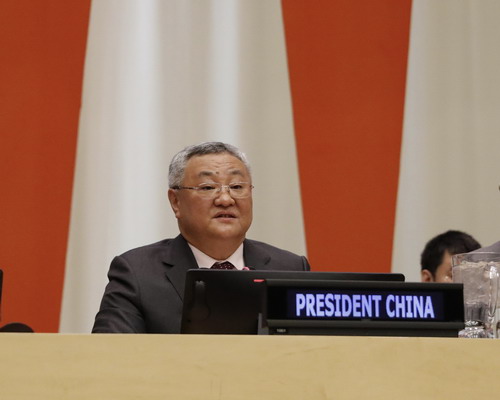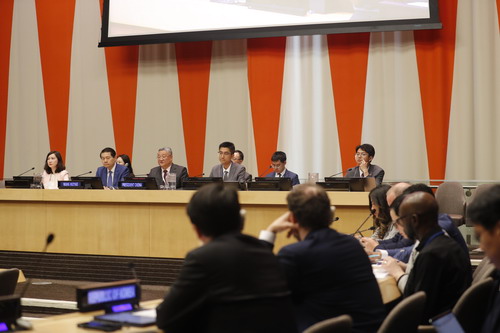
The People’s Republic of China


On April 23, Ambassador Fu Cong, Permanent Representative of China to the United Nations, chaired the UN Security Council Arria-Formula meeting on the Impact of Unilateralism and Bullying Practices on International Relations, which was attended by representatives from more than 80 countries, including Security Council members. Columbia University professor Jeffrey David Sachs and president of the Center for China and Globalization Wang Huiyao briefed the meeting.

In his keynote speech, Ambassador Fu pointed out that the US abuse of tariffs severely infringes upon the legitimate rights and interests of all countries, severely violates the WTO rules, and severely disrupts the global economic order. It is essentially about subverting the existing international economic and trade order by means of tariffs, putting the US interests above the common good of the international community, and advancing hegemonic interests of the US at the cost of the legitimate interests of all countries. The world needs openness and inclusiveness, not closure and isolation; sovereign equality, not the strong bullying the weak; fairness and justice, not putting one's own country first; solidarity and cooperation, not division and confrontation. The international community must make the right choice, make its unified voice heard, and take joint actions.
Ambassador Fu stressed that in the face of the US abuse of tariffs, a move against the trend of the times, China rose to the occasion and took decisive countermeasures, not only to safeguard its own legitimate rights and interests, but also to protect the common interests of the international community and uphold international fairness and justice. If the US truly wants to resolve the issue through dialogue and consultation, it should adopt an attitude of equality, respect, and mutual benefits. Any form of maximum pressure, threat, or blackmail is not the right way to engage with China.
During the meeting, most of the participating countries called for upholding multilateralism, strengthening dialogue and cooperation, safeguarding the WTO-centered multilateral trading system, observing the UN Charter and the basic norms governing international relations, protecting the legitimate rights and interests of developing countries, and promoting stability and development for all countries.



